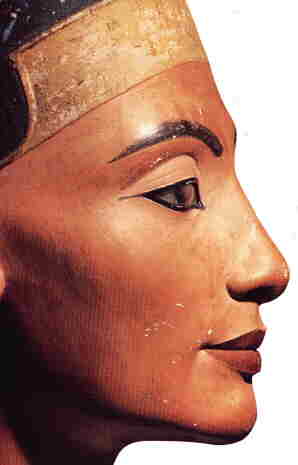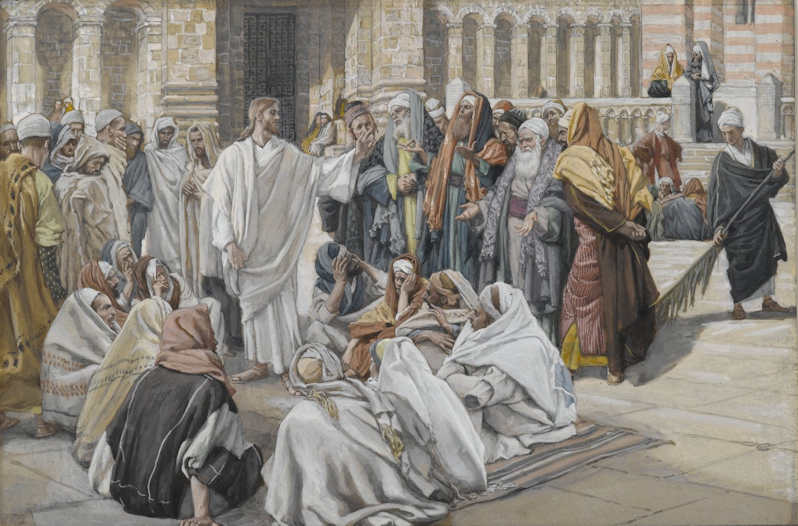Naked Fishing
Modesty in dress is a valid Biblical objective. All Christians
agree, or should agree, in commending modest attire and condemning what is
immodest:
"Blood-bought saints of God, never dress or carry yourself
in such a way so as to be an object of sexual appeal to other men or
women. Never allow yourself to be a stumbling block to the save or to
the unsaved." (Michael L. Brown, Go and Sin No More: A Call to Holiness,
Kindle location 1347).
But to get down to cases, what does that mean, in terms of inches
and seams? Does the Bible itself provide a 'dress code,' and if it does not, with what degree of
dogmatism and assurance can the church write one, and who gets to
decide what is included? For instance, can it be proven from
scripture that the apostles understood this to mean not wearing short sleeves?
Not readily. Peter was so far from awareness of this 'holiness' standard
that he went fishing in his birthday suit, according to the KJV:
"Therefore that disciple whom Jesus loved saith unto Peter, It is
the Lord. Now when Simon Peter heard that it was the Lord, he girt
his fisher's coat unto him, (for he was naked,) and did cast himself into
the sea. And the other disciples came in a little ship; (for they
were not far from land, but as it were two hundred cubits,) dragging the
net with fishes." (John 21:7-8).
The KJV is refreshing in its candor, but some translations handle
it differently. The Revised Standard Version has "stripped for work." How many
layers men wore while doing hard physical labor is open to dispute.
Certainly in any language 'naked' need not mean buck naked, but unclothed,
relatively. Short-sleeved, maybe?
Peter's concern for practicality here is refreshing. Some 'Oneness' Pentecostals,
in pursuit of modesty, insist that a woman flying an Air Force jet must
wear a skirt. Yet if she parachutes from her stricken jet wearing a skirt,
she is not dressed modestly. For that matter a woman whose job involves
climbing utility poles, or a playing the cello or riding a horse, cannot
be dressed modestly while wearing a skirt.
This is by no means to deny that modesty in clothing is a Biblical
value. Nakedness is not encouraged, either in scripture or in Jewish
tradition. The Jews came into conflict with Greek culture as pushed by
the successors to Alexander the Great, in part because the Greeks
insisted on exercising in the nude, which was not acceptable: "On this
account, it is prescribed on the heavenly tablets as touching all those
who know the judgment of the law, that they should cover their shame,
and should not uncover themselves as the Gentiles uncover themselves."
(The Book of Jubilees, Chapter 3, 31-32, R. H. Charles). The Talmud, a
very late compilation, shares the same value: "Said R. Pornach in the name of R. Johanan: Who handled the Holy
Scrolls, while naked, will be buried naked." (The Babylonian Talmud,
edited by Michael L. Rodkinson, Volume VIII, Tract Megilla, Chapter IV,
Kindle location 35096). But exactly what that means, and under what
circumstances work clothes are suitable, are subject to discussion and
should not be the topic of arbitrary legislation. Room must be allowed for
conscientious objection.

Does She or Doesn't She?
Many of the early church authors were vehement in their detestation
of face-painting:
"Tell me, have you no fear, seeing you are such, that at
the day of resurrection your Maker will not recognize you, but will set
you aside and shut you out, when you come for His promised rewards, and
will with the sternness of censor and judge severely say, 'This is not
My work; This is not Our Image?' Your complexion you have polluted with
false coloring, your hair you have altered by unnatural dyes, your
countenance is captured by a lie, your natural appearance lost, your
look is not your own. You will never be able to see God, whose eyes are
no longer God's workmanship, but the devil's craft."
(The Treatises of Caecilius Cyprian, Bishop of Carthage, and Martyr, Charles Thornton,
Treatise IV, On the Dress of Virgins, Kindle location 3918).
While Roman Catholics consider some of these writers to be
authoritative some of the time, Protestants generally do not. Specific Biblical
injunctions against the practice are missing. The wicked pagan queen
Jezebel painted her face before her miserable end:
"And when Jehu was come to Jezreel, Jezebel heard of it;
and she painted her face, and tired her head, and looked out at a
window." (2 Kings 9:30).
It is certainly significant that this is mentioned. But what is the
significance? The message may be that pride goes before a fall: Jezebel
met her end as a queen, not as a penitent. To offer this passage as a
blanket condemnation of face-painting requires adopting a rule,
'everything Jezebel did, do not do,' which people may or may not find
compelling.
The justifications offered by 'Oneness' Pentecostal preachers for
banning the practice are often more imaginative than historical. Though you'll hear from
these preachers that only prostitutes wore make-up in ancient times, this cannot be confirmed by inspection of ancient
portraiture, which shows lofty Queens like the pagan Nefertiti dolled up with eye-liner:
|

|
...or for that matter, the Jewish heroine Queen Esther:
"Mordecai had brought up Hadassah, that is Esther, his
cousin, for she had neither father nor mother...The girl pleased him and won his
favor, and he quickly provided her with her cosmetic treatments and her portion of
food..." (Esther 2:5-9).
To be sure the Book of Esther is a book about survival, not life in a perfect world.
|
|

|
Unfortunately some ancient Tammy Fayes just could not leave well enough
alone, like the Fourth Dynasty Nofret... |
The funerary portraits of Fayum provide a window onto a cross-section of
the women of late antiquity, most of whom appear to be wearing modest make-up:
Not only can it not be confirmed that only prostitutes wore make-up in
antiquity, but in some times and places, the prostitutes themselves favored a distinctly less
flamboyant look, namely the veil: "So she took off her widow’s garments, covered herself with a veil
and wrapped herself, and sat in an open place which was on the way to Timnah; for she saw that Shelah
was grown, and she was not given to him as a wife. When Judah saw her, he thought she was a harlot,
because she had covered her face." (Genesis 38:14-15). One can only speculate as to why a
prostitute should be veiled; perhaps as a prudential measure to avoid being picked out of a police line-up?
The 'Tammy Faye' look was not popular in the Roman world, where even the
prostitutes saw the virtues of the natural look.
The Roman comedian Plautus has an aging
courtesan tell her youthful successor so:
Philematium. Powder, please.
Scapha. But why on earth do you need powder?
Philematium. For my cheeks, of course.
Scapha. That would be like white-on-white; no need to gild the lily, dear.
...Philematium. All right, pass the rouge to me.
Scapha. I won't. You know, you're not
too bright. Do you want to overpaint an absolutely
perfect picture? Blooming girls like you should
never use false colouring. Never rouge, or
cream from Melos, never any paint at all."
(Plautus, The Haunted House, 256-264)
Below is a portrait of a fourth century Christian lady with her children
done in gold leaf on glass (p. 28, Chapter 2, The Class Basis of Early
Christianity, The Rise of Christianity, Rodney Stark). Comparing mom's
eyes with those of the kids, she appears to be wearing make-up. A
Christian prostitute? The 'Oneness' Pentecostal claim that
'only prostitutes wore make-up' does not fit the facts:
|

















